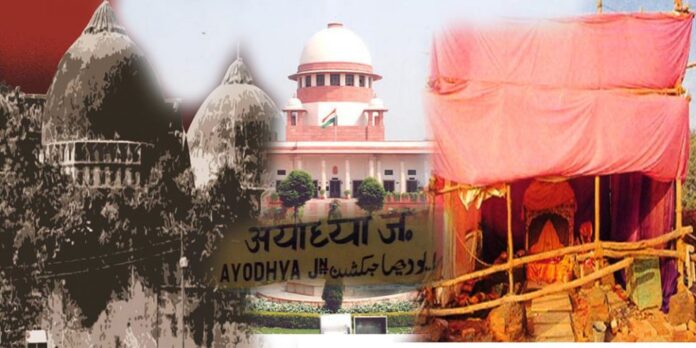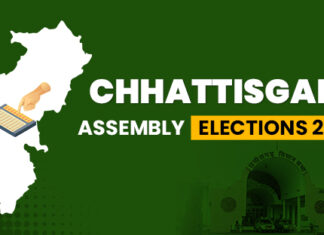The Hindutva organisations and their political organ Bharatiya Janata Party were the mastermind behind the infamous demolition of Babri Masjid in Ayodhya; they now seem to be conspiring to demolish all the historical mosques in the country. The Supreme Court has given its assent to a petition that was filed to re-examine the Places Of Worship Act (Special Provisions),1991. This Act was passed in 1991 to prevent any communal politics similar to the one that was motivated by the demolition of the Babri Masjid in 1991. By accepting this petition on March 12, 2021 the Apex Court seems to have given a go to the Hindutva conspiracy to dismantle the communal harmony. Not stopping here the Court has sent a notice to a government of BJP- a party which was the main architect of the demolition of Babri Masjid.
3. Places Of Worship Act: A Secular Sword and Shield
The Hindu right party BJP and its ideological parent ‘Sangh Parivar’ in 1990 had conspired to demolish Babri Masjid in the name of Ramjanmabhoomi. They had misused the religious believes and sentiments of the Hindus. The Indian Parliament on the other hand with an assent of all the political parties except that of the BJP had passed Places Of Worship Act (Special Provisions),1991. According to the Section 4 of this Act,
-
It is hereby declared that the religious character of a place of worship existing on the 15th day of August, 1947 shall continue to be the same as it existed on that day.
-
Bar of conversion of places of worship: No person shall convert any place of worship of any religious denomination or any section thereof into a place of worship of a different section of the same religious denomination or of a different religious denomination or any section thereof.
Also read: The Forgotten Women of the Unfinished Revolution – Part I
Section 6 of this Act recognises such a conversion as an offence,
Punishment for contravention of section 3. Whoever contravenes the provisions of section 3 shall be punishable with imprisonment for a term which may extend to three years and shall also be liable to fine.
Other than these sections, according to Section 4 (2) no Courts are allowed to take up cases regarding these conversions. The Courts in the country, if have taken up such cases before the Act was passed, are to hear such cases within the framework set by the Act. Based on the then prevalent communalism the parliament introduced Section 5 which says that the Act isn’t limited to the Babri masjid- Ram Janmabhoomi controversy.
The Places Of Worship Act (Special Provisions) of 1991 at the outset had set forth ways to control the communalising efforts of the Hindutva organisations that claimed to cleanse India of all the non Hindu worshiping places. The legal fight of the BabaBudangiri Dargah in Karnataka is also based on this very Act. Several non Hindu shrines across the country including the Gyan Vyapi mosque in Banaras are currently protected under the aegis of this Act.
In 2019 a five judge bench in a ruling, despite of lack of evidence, permitted to construct the Ram temple at the spot where the Babri Masjid once stood. This ruling of the Court, permitting those who were responsible for the demolition of the mosque to construct the temple was both unconstitutional and a historical blunder. However, this ruling had upheld the Places Of Worship Act (Special Provisions)- 1991 in its entirety and based on this Act the Court had condemned the demolition of the Babri Mosque.
This constitutional bench upholding the validity of this Act, in the paragraph 83 of the judgement, noted,
Historical blunders cannot be resolved by taking the law into hand. The parliament in the Act has declared that the historical blunders cannot be misused to suppress the present and future.
Also read: Farmers to Start Mitti Satyagraha Yatra from Dandi Tomorrow
























[…] Supreme Court to Hear Petitions Against the Places Of Worship Act… […]